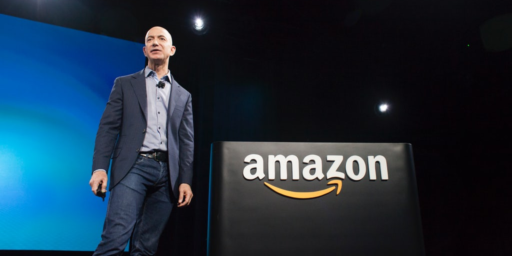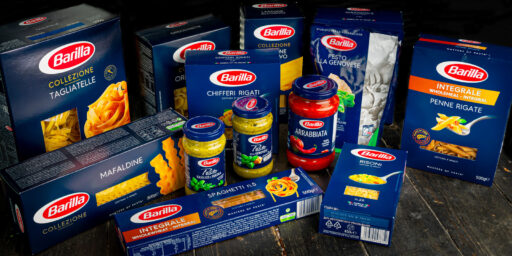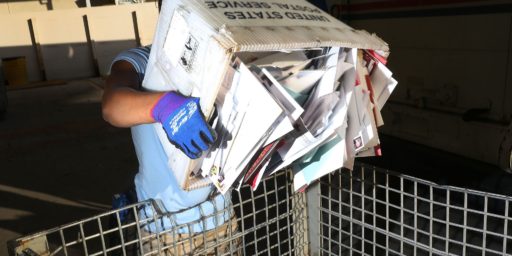Amazon Selling Groceries Online
Amazon is going into the grocery business.
Internet retailer Amazon.com has started selling groceries on its Web site, a cautious step into a business that was one of the biggest casualties of the dot-com collapse.
The service is limited to nonperishable goods such as cereal, pasta and canned soup, but Amazon can ship those items to any customer, unlike online grocers that deliver only to limited areas. “Because we only carry products when we can offer great prices and free shipping, we don’t carry everything (yet!),” the company said in a notice on its Web site.
Seattle-based Amazon has seen sales growth slow amid increased competition, and has invested heavily in technology and content to draw in new customers and increase loyalty. Like many other product categories Amazon has added over the years, groceries were quietly introduced to its Web site on May 25 through a beta, or test, page that indicates the company will evaluate the business before promoting it more widely. “We try and offer our customers one-destination shopping where they can find everything they need, and groceries are something our customers have been asking for,” Amazon spokeswoman Tracy Ogden said. “As with any of our stores, we are always looking to increase our selection.”
While I agree with Glenn Reynolds that, “If anybody can make the Internet grocery business work, it’s them,” it seems to me that the primary rationale for online grocery shopping is the convenience of not having to shop. If I still have to run to Safeway, Whole Foods, or wherever for meat, eggs, milk, and so forth, it’s hardly any great boon to not have to stop by the cereal and pasta aisles.
The only advantages I could see to this model are price and transportability. I’d have to check the prices out to see if there’s really any savings vice buying in bulk during store sales. From a quick glance, it looks like cleaning supplies–which Amazon sells in bulk–are substantially more expensive than at Target, let alone Costco.
For those who have difficulty carrying heavy items, either because of strength issues or because they do not have a car, it might still be worthwhile to pay for the convenience of having them delivered, given free shipping.






The only problem I see with what Amazon is doing is that, unlike services like Peapod, this isn’t going to be a same-day delivery service. For people used to, or able to, order grocery stapes several days in advance (unless you want to pay the extra money for overnight shipping or Amazon Prime membership), this might work. Given the way most people buy groceries, though, I’m not sure how successful Amazon can be at this.
I can see this working with parents with kids living outside of the house. Instead of the parent sending cash to the �starving� child and not knowing how they are going to spend the money they can order their groceries and household items online and have it shipped to them.
Exek,
I think you stumbled on something. And imagine what this could do to many college students’ alcohol budget!
Its unlikely that Amazon will be selling alcohol of any kind through this service. As wine lovers can attest, many states bar the shipment of alcohol directly to consumers altogether. In the rest, its tightly regulated and usually requires getting a license of some kind.
There is another side to this. We just ordered some glutton free coating (meaning its made without wheat). A specialty, non-perishable item that makes sense to consolidate as a web business vs local business given the total number of customers national vs locally.
When it got here, the two canisters had been crushed. Not something that would have likely happened if I went to the store or was picking among canisters on display at the store (assuming the damage happened in shipping it to the store).
So what happens if what you ordered from Amazon is damages. Imagine the fun of the Clorox opening up and leaking into you Wheaties. At best returns would be a hassle and delay.
Amazon offers free shipping w/ orders over $25, which would include these groceries, IIRC. Plus, no sales tax… in some states.
Does Amazon.com take coupons?